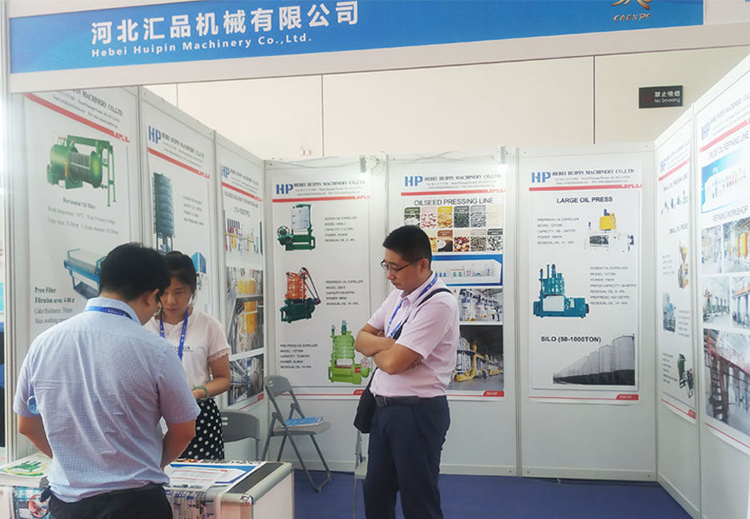Dec . 25, 2024 13:43 Back to list
Rapeseed Oil Refining Equipment Manufacturer for High-Quality Production Solutions
Understanding Rapeseed Oil Refining The Role of Manufacturers
Rapeseed oil, derived from the seeds of the rapeseed plant, has gained popularity worldwide due to its numerous health benefits and culinary uses. With the growing demand for high-quality edible oils, the need for efficient and reliable refining processes has led to an increase in the number of manufacturers specializing in rapeseed oil refining machines. This article aims to explore the significance of these machines, the refining process, and the role of manufacturers in ensuring high-quality rapeseed oil production.
The Importance of Oil Refining
Refining is a crucial step in the processing of rapeseed oil. The crude oil extracted from rapeseeds contains impurities, such as phospholipids, free fatty acids, and residual solvents, which can negatively affect its flavor, shelf life, and safety. The primary goal of refining is to remove these impurities, thereby enhancing the quality and stability of the oil. This process not only improves the oil's taste but also increases its nutritional value, making it more appealing to consumers.
The Refining Process
The refining process of rapeseed oil typically involves several key steps
1. Degumming This is the first stage, where impurities like phospholipids are removed using water or acid. The degumming process ensures that the oil is clear and free from any sticky residues that could affect its quality.
2. Neutralization In this stage, free fatty acids are neutralized with an alkali solution, resulting in the formation of soapstock, which is then removed. This step helps to improve the flavor and reduce the acidity of the oil.
3. Bleaching The oil is then treated with bleaching agents such as activated carbon or clays to remove pigments and impurities that could affect its color and taste. This step is crucial for achieving the desired clarity and appearance of the final product.
rapeseed oil refined machine manufacturer

4. Deodorization Finally, the oil undergoes deodorization, where steam is introduced at high temperatures to eliminate any remaining odors and flavors. This step is vital for producing a neutral-flavored oil that can be used in various culinary applications.
Role of Manufacturers
Manufacturers of rapeseed oil refining machines play a pivotal role in ensuring the quality and efficiency of the refining process. These companies design and produce advanced equipment that can handle large volumes of oil while maintaining strict quality control standards. Some of the key responsibilities of these manufacturers include
- Innovation Leading manufacturers invest in research and development to create cutting-edge refining technologies. This includes developing machines that utilize environmentally friendly processes and reduce waste, contributing to sustainable production practices.
- Quality Assurance Manufacturers ensure that their machinery complies with international safety and quality standards. This is essential for producers aiming to maintain high-quality production and avoid contamination.
- Customization Different oil refineries have unique needs, and manufacturers often provide customized solutions tailored to specific production requirements. This flexibility helps clients optimize their refining processes and achieve higher efficiency.
- Support and Maintenance Reputable manufacturers offer ongoing support and maintenance services to ensure the longevity and optimal performance of their equipment. This support is crucial for minimizing downtime and maximizing productivity in oil refining operations.
Conclusion
The refining of rapeseed oil is a complex process that plays a significant role in enhancing the quality and appeal of this popular edible oil. Manufacturers of rapeseed oil refining machines are essential players in this industry, driving innovation, ensuring quality, and providing the necessary support to oil producers. As the demand for high-quality rapeseed oil continues to grow, the importance of reliable and efficient refining machinery will only increase, highlighting the crucial role these manufacturers play in the global edible oil market. Investing in advanced refining technology will not only benefit manufacturers but ultimately lead to better products for consumers, fostering a healthier culinary landscape.
-
Leading Food Oil Refined Unit Companies | Quality & Efficient Solutions
NewsAug.27,2025
-
Expert Food Oil Refined Unit Companies | Advanced & Efficient Refining
NewsAug.26,2025
-
Food Oil Refined Machine Companies: High-Efficiency Oil Refining
NewsAug.25,2025
-
Popular Commercial Oilseed Crushing Machinery | High-Yield Oil Expeller Press
NewsAug.24,2025
-
Food Oil Refined Unit Companies: Leading Manufacturers & Exporters
NewsAug.23,2025
-
Expert Oil Filter Machine Service & Solutions | Quality & Reliability
NewsAug.22,2025
